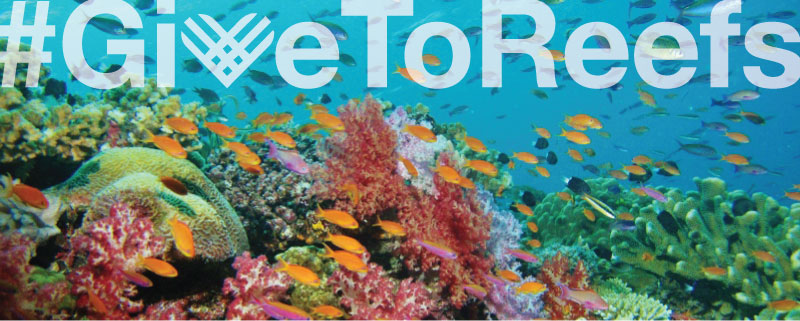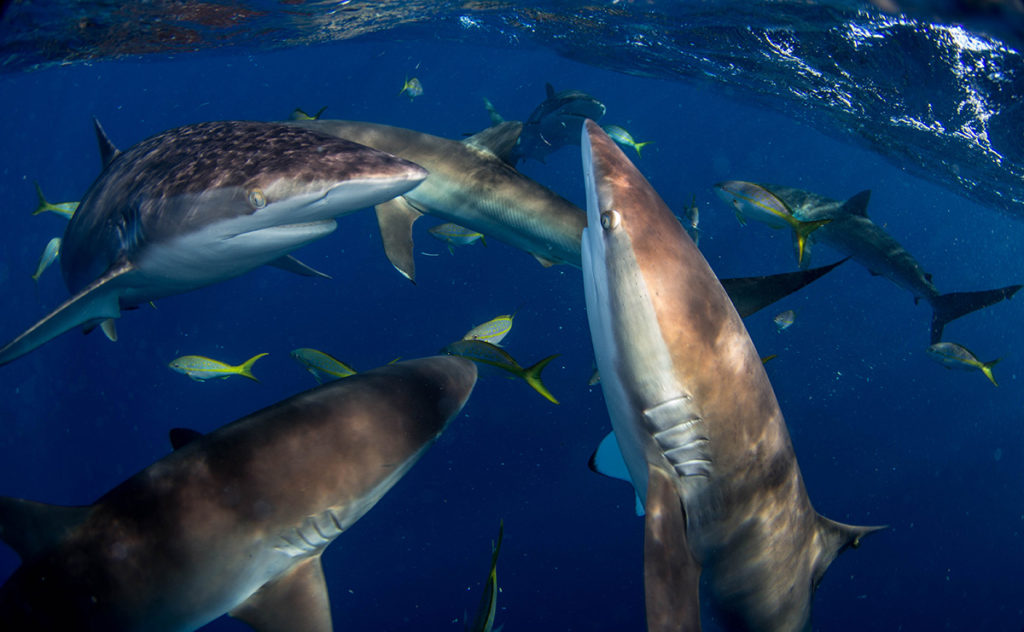Day 7 of our underwater journey celebrating coral reefs ends with the apex predator and their value to coral reefs worldwide: reef sharks.
Sharks are commonly misunderstood and widely feared. These remarkable animals, however, are valuable to the tourism industry and the economic health of coral reef destinations.
A report from the Australian Institute of Marine Science found that shark tourism accounts for approximately eight percent of the gross domestic product (GDP) of the island nation of Palau. The study showed that the roughly 100 sharks inhabiting the most popular dive sites in the area were each worth $179,000 annually to the local tourism industry, giving each shark an approximate lifetime value of $1.9 million. Worldwide, established shark-related diving operations can be found in at least 83 locations in 29 different countries.
However, shark populations are declining at an alarming rate. Approximately 30 percent of shark species are threatened or nearly threatened with extinction, and the status of another roughly 50 percent is unclear due to insufficient data. Intense commercial fishing is largely to blame for the decline, and shark finning, the practice of removing a shark’s fins and discarding the rest of the animal to die at sea, is particularly rampant. This practice is driven by demand for shark fin soup, a delicacy that creates a lucrative market for shark fins.
Because most sharks reproduce late in life and bear few offspring, scientists fear that some severely depleted populations may take hundreds of years to rebuild. This frightening prospect has compelled conservationists, scientists and government officials to push for greater shark protection.
Recently, Palau and the Maldives have created shark sanctuaries by prohibiting commercial shark fishing in their countries’ exclusive economic zones. Honduras also implemented a shark fishing moratorium, and Hawai’i has now instituted a retention ban aimed at banning the possession of shark fins in state waters. Indonesia recently signed a shark and ray sanctuary into law. Lastly, in Fiji, we have worked with our partners to get better protection for sharks through wide-reaching media and education campaigns.
These initiatives will educate communities about their vested stake in preserving healthy shark populations to support the coral reef ecosystems that provide them with food, income and coastal protection. Additional shark sanctuaries and conservation policies are gaining momentum around the world.
Thank you for following our underwater journey and tomorrow, on November 29, please celebrate #GivingTuesday with us and #GiveToReefs.

